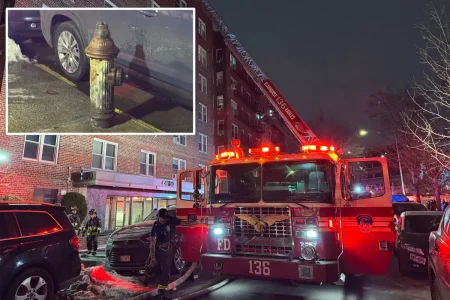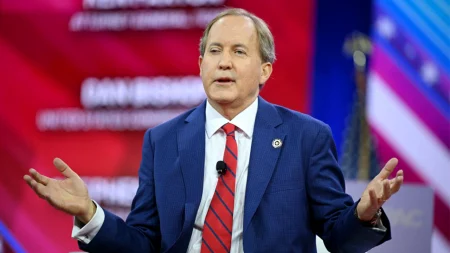Controversial Influencer Andrew Tate Faces Legal Challenge Over Alleged Harassment
High-Profile Legal Battle Unfolds as Witness Claims Intimidation
In the rapidly evolving world of social media influence, few figures have generated as much controversy as Andrew Tate. The former kickboxer turned internet personality has amassed millions of followers across various platforms, building a brand around masculine lifestyle advice that critics have often labeled misogynistic. Now, Tate and his brother Tristan find themselves embroiled in a complex legal dispute that raises serious questions about witness intimidation, online harassment, and the real-world consequences of digital influence.
The case centers around allegations made by a woman who provided testimony in Romania, where the Tate brothers have maintained a significant presence in recent years. According to court documents and statements from the woman’s legal representatives, she claims to have experienced a systematic campaign of harassment after participating in Romanian legal proceedings involving the Tates. The woman, whose identity has been protected throughout these proceedings for safety concerns, alleges that following her testimony, she became the target of coordinated online attacks, intimidating messages, and what her legal team describes as “a clear attempt to silence and discredit a witness.”
This legal confrontation unfolds against the backdrop of the Tates’ already complicated legal situation in Romania, where authorities have been investigating the brothers on separate matters. Andrew Tate’s rise to prominence has been marked by controversy, with his content frequently featuring provocative statements about women, wealth, and what he terms “the modern masculinity crisis.” His ability to leverage algorithms across TikTok, YouTube, and other platforms turned him into what some media analysts have called “the internet’s most viral misogynist,” though his supporters argue his messages are misunderstood and taken out of context. The current harassment allegations add another dimension to public perceptions of the influencer, whose online empire has already faced significant scrutiny and platform restrictions.
The Implications of Digital Harassment in High-Profile Cases
The legal team representing the complainant has presented evidence they claim demonstrates a pattern of behavior intended to intimidate and discredit their client. “What we’re seeing here represents a disturbing trend where online influence is weaponized against witnesses in legal proceedings,” stated Elena Mihai, a legal expert specializing in digital crimes who is not directly involved in the case but has followed it closely. “The scale of reach that influencers like the Tates have means that even subtle suggestions to their followers can result in overwhelming harassment campaigns, creating a chilling effect for others who might consider coming forward.”
The case has drawn attention from digital rights organizations and legal experts who point to the growing challenges of addressing witness intimidation in the age of social media. Traditional legal frameworks were not designed to address scenarios where influential figures might mobilize millions of followers, even inadvertently, against individuals. Prosecutors in the case have reportedly gathered evidence including messages, comments, and posts across multiple platforms that they believe constitute a coordinated effort to undermine the witness’s credibility and psychological wellbeing. The defense has vigorously disputed these characterizations, maintaining that neither Andrew nor Tristan Tate directed any harassment campaign and cannot be held responsible for the independent actions of their followers.
The Romanian legal system now faces the complex task of determining whether the alleged harassment meets the threshold for criminal conduct and, if so, establishing the degree of responsibility the Tate brothers bear for actions that may have been carried out by followers acting independently. This case potentially sets important precedents for how legal systems worldwide address the unique challenges posed by influencer culture and the massive digital communities that form around controversial figures. “We’re in uncharted territory,” notes Cristian Popescu, a Romanian legal scholar. “The law must adapt to address situations where someone with millions of followers can create pressure on witnesses without explicitly directing harassment.”
Broader Questions About Influencer Responsibility and Platform Governance
This legal battle highlights the growing tension between freedom of expression and the potential harm that can come from massive online followings directed toward individuals. Content creators with substantial audiences increasingly face questions about their responsibility for the actions of their followers. Platform governance experts have been watching the case with interest, as it intersects with ongoing debates about how social media companies should moderate content and prevent harassment campaigns.
“The traditional legal distinction between direct incitement and protected speech becomes blurred in the influencer economy,” explains Dr. Simona Dragomir, who researches digital media ethics at the University of Bucharest. “Someone with millions of followers knows that even subtly highlighting an individual could result in that person receiving unwanted attention from thousands or even millions of people. Yet our legal frameworks haven’t fully adapted to this reality.” Several major platforms have already taken action against Andrew Tate’s accounts in the past, citing violations of terms of service related to hate speech policies, though he has maintained presence through appearances on others’ channels and alternative platforms.
The case against the Tates continues to develop, with hearings scheduled in the coming months. Legal experts suggest that regardless of the outcome, this case will likely influence how courts, legislators, and platforms approach the intersection of influencer culture and witness protection in legal proceedings. For the woman at the center of the case, the legal process itself represents a significant challenge, as she continues to navigate what her representatives describe as ongoing harassment while participating in a high-profile legal battle against individuals with substantial resources and digital influence.
Cultural Impact and International Attention
The case has garnered significant international media attention, reflecting both the Tates’ global following and the universal relevance of questions surrounding online harassment. Digital safety advocates have pointed to this situation as emblematic of the challenges facing vulnerable individuals in high-profile cases. “When witnesses face not just traditional intimidation but the prospect of becoming targets for millions of online followers, we have to ask serious questions about whether our legal systems adequately protect those who come forward,” notes Alexandra Reyes of the Digital Witness Protection Initiative, an NGO that supports witnesses facing online harassment.
Legal systems worldwide are increasingly confronting similar challenges as the influence of social media personalities grows. In several jurisdictions, new legislation specifically addressing digital harassment and witness intimidation in the context of social media is being considered or has recently been implemented. These developments reflect growing recognition that traditional approaches to witness protection may be insufficient in cases involving high-profile digital personalities with massive followings.
The Romanian prosecutor’s office has declined to comment specifically on ongoing proceedings but has released general statements emphasizing their commitment to protecting witnesses and taking allegations of harassment seriously. Representatives for the Tate brothers have consistently maintained their clients’ innocence, suggesting that the allegations represent an attempt to damage their reputation rather than address genuine legal concerns. “My clients categorically deny orchestrating or encouraging any harassment campaign,” stated their legal representative in a recent press statement. “They respect the legal process and expect to be fully vindicated when all evidence is properly examined.”
Looking Forward: Precedents and Potential Outcomes
As this case progresses through the Romanian legal system, legal observers worldwide are paying close attention to how the court will balance free speech protections with witness safety concerns. The outcome could establish important precedents for how similar cases are handled in other jurisdictions, particularly as influencer culture continues to evolve and the lines between online content and real-world consequences become increasingly blurred.
For platforms hosting content creators with massive followings, the case raises difficult questions about their role in preventing harassment campaigns. “Social media companies are caught in a difficult position,” explains tech policy analyst Victor Dumitrescu. “They need to protect free expression while preventing their platforms from becoming vehicles for harassment. Cases like this highlight the challenges in striking that balance, especially when dealing with influential figures whose content walks the line of platform policies.”
Whatever the outcome, this case represents a significant moment in the evolving relationship between digital influence and legal accountability. As Andrew and Tristan Tate continue to fight the allegations against them, the woman who brought these claims forward has, according to her representatives, remained resolute in her pursuit of justice despite the challenges of confronting such high-profile figures. The intersection of influencer culture, witness protection, and digital harassment exemplified in this case provides a window into the complex challenges facing courts, platforms, and society as we navigate the unprecedented terrain of global digital influence and its real-world implications.










